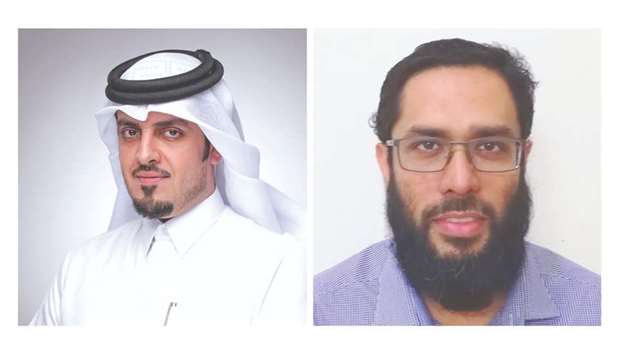Researchers at the College of Science and Engineering (CSE) at Hamad Bin Khalifa University (HBKU) have developed an innovative artificial intelligence (AI)-based model to analyse and improve players' performance in professional football leagues.
PhD student Jassim Mohamed AlMulla, a Qatari national with a passion for football, worked with his supervisor, Dr Tanvir Alam, an assistant professor in CSE’s Information and Computing Technology Division, to develop an AI-based model to analyse and recommend key performance metrics to win matches for the Qatar national team players.
With less than two years for Qatar to host the first ever FIFA World Cup tournament in the Middle East, the researchers are optimistic that the study could boost the national team’s overall performance.
Matches held in the country’s top league, the Qatar Stars League (QSL), between 2012 and 2019 were analysed using AI-based models. The study analysed players’ performances in a total of 864 QSL matches. For each match, the collective performance of the players in key playing positions (defender, midfield, forward) was analysed to understand their effectiveness in winning games.
The researchers formulated the study as a classification framework under machine learning (ML), which is a major branch of AI, to distinguish the winning team from the losing team in a match. Different ML models were considered for the classification task, and the logistic regression-based model was considered the best performing model with more than 80% accuracy. The proposed methodology can be used by the football management team to identify players’ performance metrics that could be considered as contributing factors to determine match results. Several sophisticated mathematical models (based on AI) were then developed to analyse the players’ performance in QSL matches, and the study revealed some key winning strategies for the teams. The research work has been published in the IEEE Access Journal.
Dr Alam said: “We believe the proposed machine learning model can support the players, coaching staff, and team management in Qatar to focus on specific performance metrics that can enhance the team’s performance.”
Dr Mounir Hamdi, founding dean, CSE, said: “We are delighted to see our Qatari graduate students advancing their research aspirations and using the opportunities to work side by side with our talented faculty members. The study not only highlights the potential of this rapidly evolving field, but also the role of our programmes at CSE to meet the growing need for professionals with the fundamental knowledge to apply these technologies for real-world impact.”
Ahmed Khellil Abbassi, executive director of competitions and football development at QSL, said: “In Qatar, we believe in adaptive changes in the improvement of our sports and football. Such data-driven AI-based research will allow us to learn from the past and to create a better plan for the future, aligning Qatar as a global pioneer in innovation and football technology.”
With less than two years for Qatar to host the first ever FIFA World Cup tournament in the Middle East, the researchers are optimistic that the study could boost the national team’s overall performance.
Matches held in the country’s top league, the Qatar Stars League (QSL), between 2012 and 2019 were analysed using AI-based models. The study analysed players’ performances in a total of 864 QSL matches. For each match, the collective performance of the players in key playing positions (defender, midfield, forward) was analysed to understand their effectiveness in winning games.
The researchers formulated the study as a classification framework under machine learning (ML), which is a major branch of AI, to distinguish the winning team from the losing team in a match. Different ML models were considered for the classification task, and the logistic regression-based model was considered the best performing model with more than 80% accuracy. The proposed methodology can be used by the football management team to identify players’ performance metrics that could be considered as contributing factors to determine match results. Several sophisticated mathematical models (based on AI) were then developed to analyse the players’ performance in QSL matches, and the study revealed some key winning strategies for the teams. The research work has been published in the IEEE Access Journal.
Dr Alam said: “We believe the proposed machine learning model can support the players, coaching staff, and team management in Qatar to focus on specific performance metrics that can enhance the team’s performance.”
Dr Mounir Hamdi, founding dean, CSE, said: “We are delighted to see our Qatari graduate students advancing their research aspirations and using the opportunities to work side by side with our talented faculty members. The study not only highlights the potential of this rapidly evolving field, but also the role of our programmes at CSE to meet the growing need for professionals with the fundamental knowledge to apply these technologies for real-world impact.”
Ahmed Khellil Abbassi, executive director of competitions and football development at QSL, said: “In Qatar, we believe in adaptive changes in the improvement of our sports and football. Such data-driven AI-based research will allow us to learn from the past and to create a better plan for the future, aligning Qatar as a global pioneer in innovation and football technology.”

